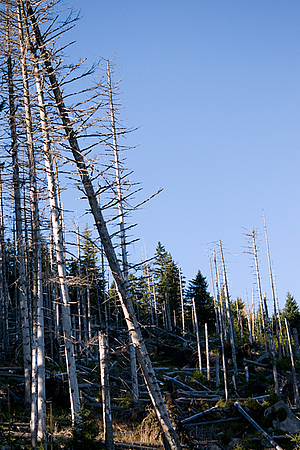Conservation of forest genetic resources in the context of climate change

Over the past decades, European countries have taken significant steps to conserve the genetic resources of forest trees. However, they have rarely taken into account the implications of climate change for the conservation of forest genetic resources. Climate change poses unique conservation challenges that require specific responses. For these reasons, the EUFORGEN Steering Committee established a working group on climate change and the conservation of forest genetic resources.
This report presents the conclusions of that working group. In Europe, recovery from previous deforestation has seen forests expand in area and timber stock over the past 50 years, during which time the forests have also acted as a carbon sink. National adaptation strategies to climate change and other policies have been formulated in many European countries to harness the potential of forests and the forestry sector for mitigating climate change. However, the impacts of climate change on forests, and especially on their genetic diversity, have not been given proper consideration in these policies. The working group made several recommendations for action:
- designate additional genetic conservation units specifically to respond to climate change;
- enhance cooperation among countries and enlarge the pan-European collaboration on the conservation of forest genetic resources;
- continue and expand monitoring and sharing of data, including the development of decision tools and red lists;
- conduct further research on aspects of assisted migration and on marginal and peripheral tree populations.
Colin Kelleher summarises the working group’s approach and recommendations.
 | Approaches to the conservation of forest genetic resources in Europe in the context of climate changeIn Europe, forests have been expanding in terms of area and timber stock over the past 50 years and… |
Download |
